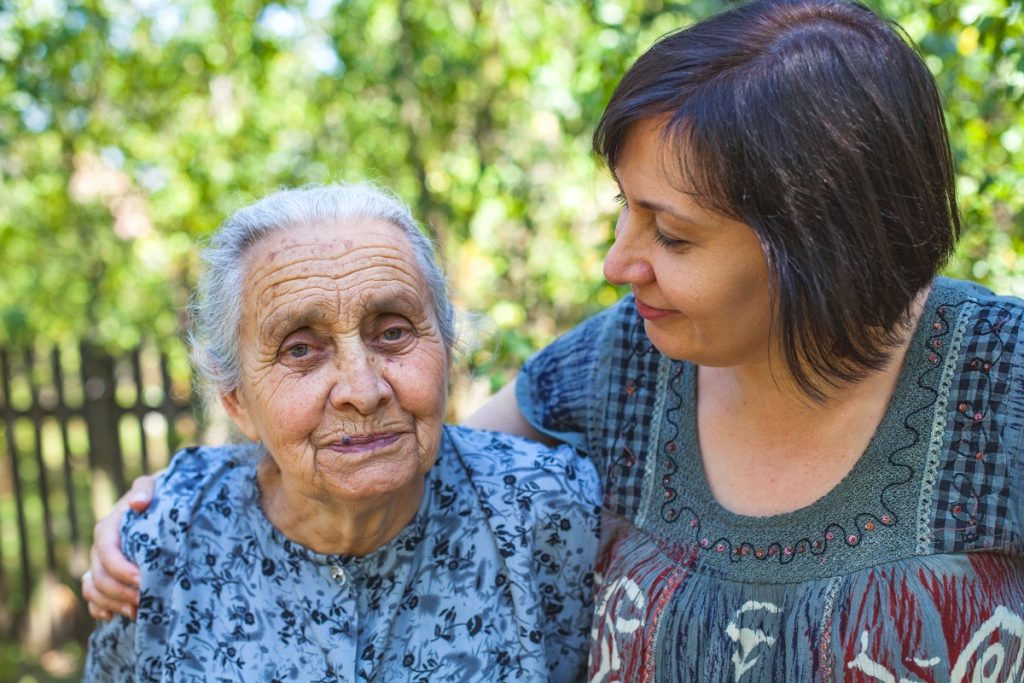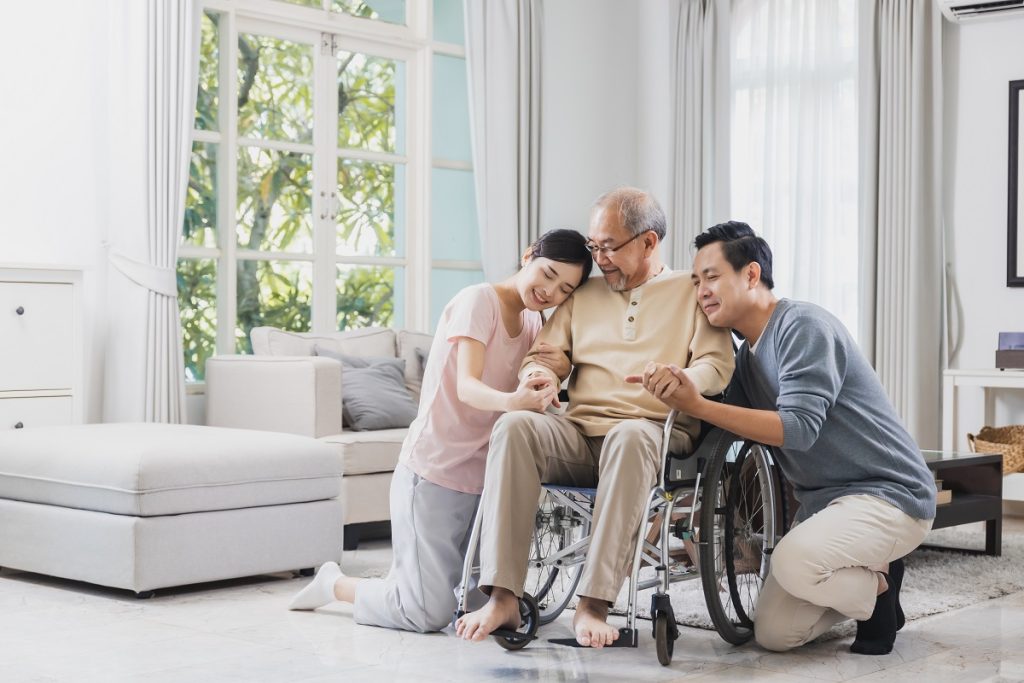As your parents age, they may need more help managing daily life, taking care of health conditions, or determining the best place to live. Even when they want to remain independent, they may need your advice, support, and assistance in adjusting to their changed circumstances.
Trite as it may sound, we get so busy navigating our adult lives that we forget our parents are getting older too. And for the adult populace with aging parents, this is one pressing question that needs to be addressed: How do you best take care of your parents in their old age?
What Kind Of Help Do Your Parents Need As They Age?
Per a 2020 report from the National Alliance for Caregiving (NAC) and the AARP Public Policy Institute, over 50 million Americans provide unpaid caregiving services to an adult with functional or health needs.
When taking care of elderly parents, these are the main areas where they may need help. As they won’t be as mobile and physically fit as when they were young, they’d need assistance to perform some activities like driving, running to the grocery store, going to and from their doctor’s appointments, or deep-cleaning their home.
Their daily life may also be impaired or affected by health issues such as Alzheimer’s, heart and respiratory diseases, and cancer. To improve their living condition as they age, having and implementing a personalized care plan is advantageous.
Parental needs also include psychological ones. They could be battling feelings of isolation and helplessness. And family members need to realize that although elderly parents are frail and already at the sunset of their lives, they may still yearn for some level of independence.

How Should You Address Their Need For Help With Their Desire For Independence?
Though your intention is genuine — whether you’re taking on the role of a family caregiver yourself, enlisting professional home care services, or sending them to an assisted living facility — drawing the line between being too overbearing and effectively caring for your aging loved ones is rather difficult.
This becomes even more challenging if, as mentioned, your parents also want to feel self-reliant.
Concerns like this emphasize the need to be respectful, patient, and understanding when providing them with assistance.
Assess their needs and seek help from a health care professional to appraise their health conditions. Involve your parents in the conversation — ask them how they feel, and let them take the lead when it comes to handling their well-being.
How Can You Best Help Them?
When your parents reach old age, various issues also arise. The family dynamics will change; in some cases, you assume the role of parent and they take on the role of more dependent children. Also, you have to balance caring for them and your own household (if you already have your own) without being heavy-handed.
As with other things in life, maintaining good communication is essential. So don’t be afraid to speak up, but don’t neglect what your parents have in mind. Talk to your siblings and other family members and discuss among yourselves how you will provide long-term care for your aging parents.
While at it, ensure you’re also setting up safety nets. You can build a strong support system by proactively consulting with professionals specializing in caring for older adults. Establish relationships with geriatric care managers and area agencies.
Keep in mind that elder care isn’t a walk in the park. In fact, the same report from NAC and AARP found that 23% of Americans claim that their health has worsened because of caregiving.
The best way to help your elderly parents is to acknowledge that you can’t do it on your own. And in the process of taking care of them, you should never compromise your own physical and mental health.

Why Should You Take Care Of Your Parents In Their Old Age?
Did you know that many states across America have filial responsibility laws? These laws acknowledge that as parents age, they will find it hard to sustain a sound quality of life on their own. Hence, their adult children have the legal duty to ensure that their basic necessities are met.
Though controversial, even paying for their parents’ medical care (which requires a substantial amount in many cases) may be the obligation of adult children.
But beyond fulfilling legal duties, taking care of your parents is one way of reciprocating the support they’ve given you through the years. It’s not a necessity, but it’s viewed by many as a moral obligation. Your parents played a massive role in getting you to where you are today. They’ve made many sacrifices for you that you may or may not even know.
Whether they will be moving with you in your own home or they will be staying in senior living communities or nursing home — you’ll also learn a thing or two about the circle of life in general.
Though it will be overwhelming, you’ll gain insight into what it’s like living as an elderly. This is especially eye-opening if your parent has a chronic condition like Alzheimer’s disease. With experience under your belt about planning for senior care, you can better prepare your own senior care plan.
Ways To Help Them Based On Their Specific Needs
Taking care of your parents in their old age is simply the right thing to do. The truth is, they don’t have much time to live, and you don’t want to regret not doing something for them while they are still by your side.
The question is, how do you help them?

Let them stay social
Older people tend to develop the need for a strong sense of belongingness. So empower them to have a social life. Let them attend neighborhood gatherings with fellow seniors or encourage them to host dinner with their friends. You and your family members should also spend time with them. You can also contact them by phone if you can’t visit in person.
If they live with you, make sure their social life does not come to an end. No matter how welcoming your friends and neighbors are to them, they will miss their own peers!
Assist them in downsizing
If they decide to downsize, be there to lend a helping hand but don’t take control. Let them decide which belongings stay with them or not. If they decide to “age in place” in their current or newly-acquired home, what you can focus on is setting up safety modifications, like grab bars, to help them be more mobile.

Consider living with them
Though not a general requirement, your unique situation may prompt you to invite your aging parent/s to move into your home. Perhaps, it will be more efficient to look after them if you’re under the same roof. Alternatively, you can send them to a facility where they can be taken care of round-the-clock. In places like that, there will be care providers who can cater to their needs, especially health-related ones (e.g., consequences of memory loss.)
Hire a reputable caregiver support provider
If you decide to opt for in-home care services, make sure that the provider you’ll hire has a good reputation. Besides looking into their technical skills, consider their soft skills and your and your parents’ rapport with them.
Enlist help from non-medical professionals
Apart from health-related assistance, aging parents also need help with finance and legal matters (e.g., estate plans, wills, power of attorney). To take care of these, you’d need the guidance of professionals like an attorney and a financial advisor.
Take care of your own health
Caring for elderly parents is physically, emotionally, and mentally taxing. It’s like a full-time job that demands much of your time and energy. To live your own life well, don’t neglect self-care. Join support groups and get other family members involved. Most importantly, maintain a positive outlook — it’s contagious.

